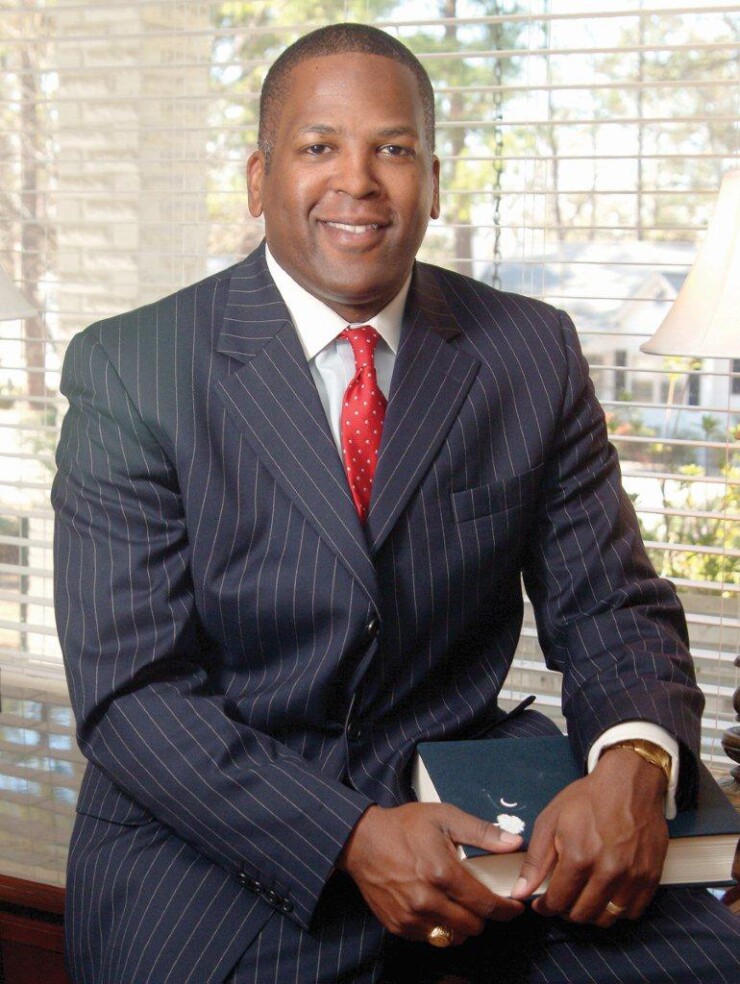
WASHINGTON – The next president must maintain the tax exemption for municipal bonds -- the "bread and butter" of infrastructure financing -- or risk costing cities up to $500 billion, a group of mayors recently told Republican and Democrat campaign representatives.
The U.S. Conference of Mayors (USCM) stressed the importance of the muni exemption at its bipartisan fall leadership meeting last week in Oklahoma City, which focused on the actions that should be taken during the first 100 days of the next administration, including the development of a much-needed national infrastructure investment policy.
At the three-day conference that ran from Sept. 29-Oct. 1, the organization stressed that federal support is still needed to address infrastructure issues, such as the repair or construction of roads, bridges, power grids and water systems.
Stephen Benjamin, the mayor of Columbia, S.C. and the second vice president of USCM, said in a press conference that while Congress discusses the need for modernization of infrastructure, it continues to "play fast and loose" with the tools that will make that possible.
"The tax exemption on municipal bonds is the only thing we have left to meet the nation's infrastructure needs," said Benjamin, who also serves as chair of the advocacy group Municipal Bonds for America and formerly practiced public finance law at ParkerPoe. "This is not dessert – this is bread and butter, and it's important to us that we reaffirm our position that investment in our cities is non-negotiable."
In June 2015, USCM adopted a resolution against limiting tax-exempt bonds under proposals from Congress and the Obama administration. Obama has proposed capping the value of the muni exemption at 28% in his last few budget requests. The mayors group has warned such a cap would raise borrowing costs to issuers.
Should the incoming president adopt a measure capping the muni exemption at 28%, cities would see increased costs of almost $200 billion, Benjamin said at the press conference. If the exemption was to be removed entirely, those same costs would rise to nearly $500 billion, he added.
This would prohibit cities from making investments in infrastructure, which the U.S. has been "putting Band-Aids on" for too long, he warned.
He said USCM had unanimous support for the muni exemption, and cited the $1.65 trillion in debt issued for infrastructure by state and local governments from 2003-2012.
"We want this nation to continue to flourish," Benjamin said. "The only way we can continue to do that is if we invest in infrastructure and we need the tax exemption of municipal bonds to do that."
Trump does not explicitly mention municipal bonds in his tax plan, but several experts have warned that his proposal and its across-the-board tax cuts could reduce incentives for purchasing munis while increasing the federal debt. He has proposing borrowing several hundred billion dollars to spend on infrastructure.
Clinton's plan specifically talks about bonds and has generally been more positively received in regards to its potential impact on munis because of its goal to raise taxes for those at the top, which could make tax-exempt bonds more appealing.
Her plan would increase federal funding for infrastructure by $275 billion over five years, allocating $25 billion to direct public investment and $25 billion to a national infrastructure bank to be leveraged to support an additional $225 billion in direct loans, loan guarantees and other forms of credit enhancement. She would renew and expand Build America Bonds under a program to be administered in part by the infrastructure bank.
A total of $181 billion of BABs was issued before the bonds expired at the end of 2010. The GOP tax plan released by the House Ways and Means Committee in June suggested repealing unidentified exemptions, deductions and credits, but does not mention munis directly.
Based in Washington, USCM is the nonpartisan organization of the roughly 1,400 U.S. cities with populations of 30,000 or higher.
A total of 41 mayors attended its fall meeting, including New York City Mayor Bill de Blasio, Baltimore Mayor Stephanie Rawlings-Blake, and New Orleans Mayor Mitch Landrieu, the USCM vice president.





